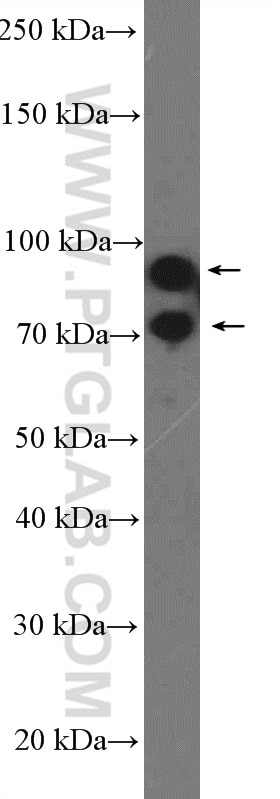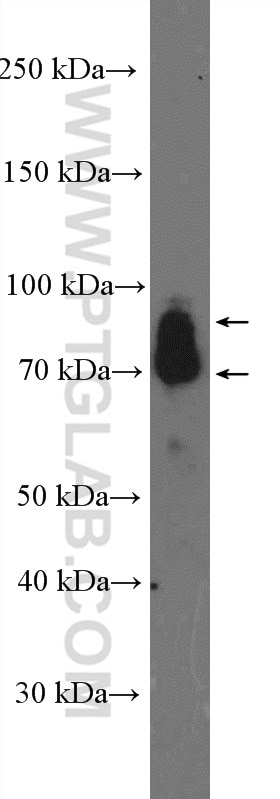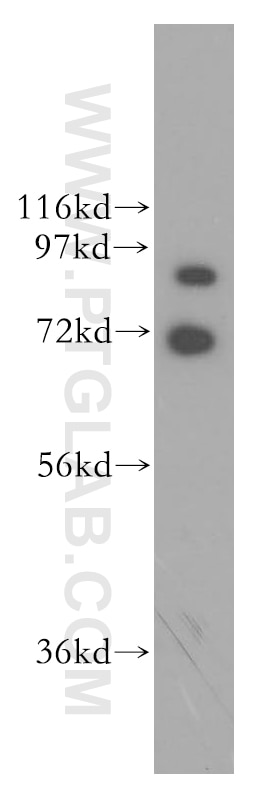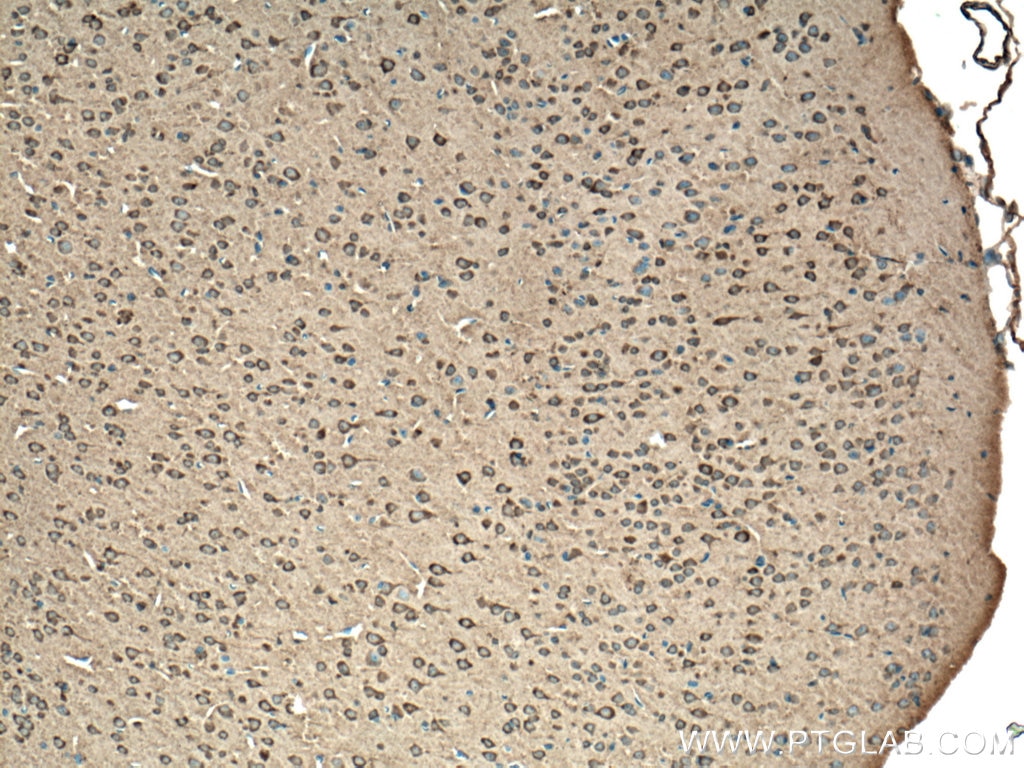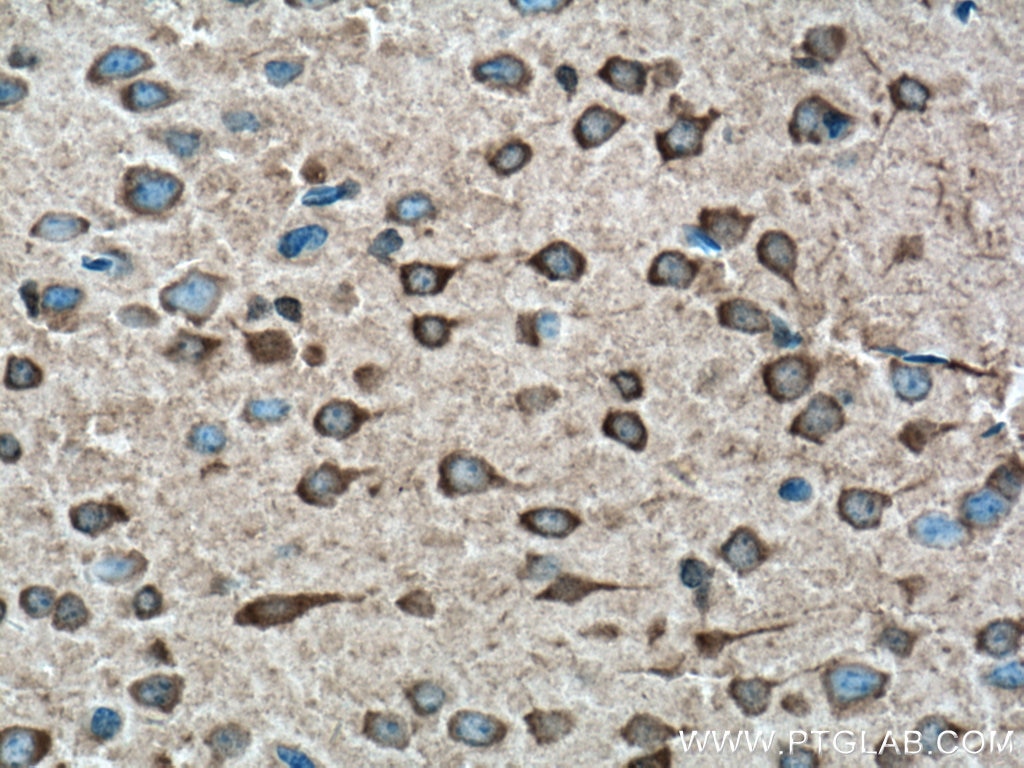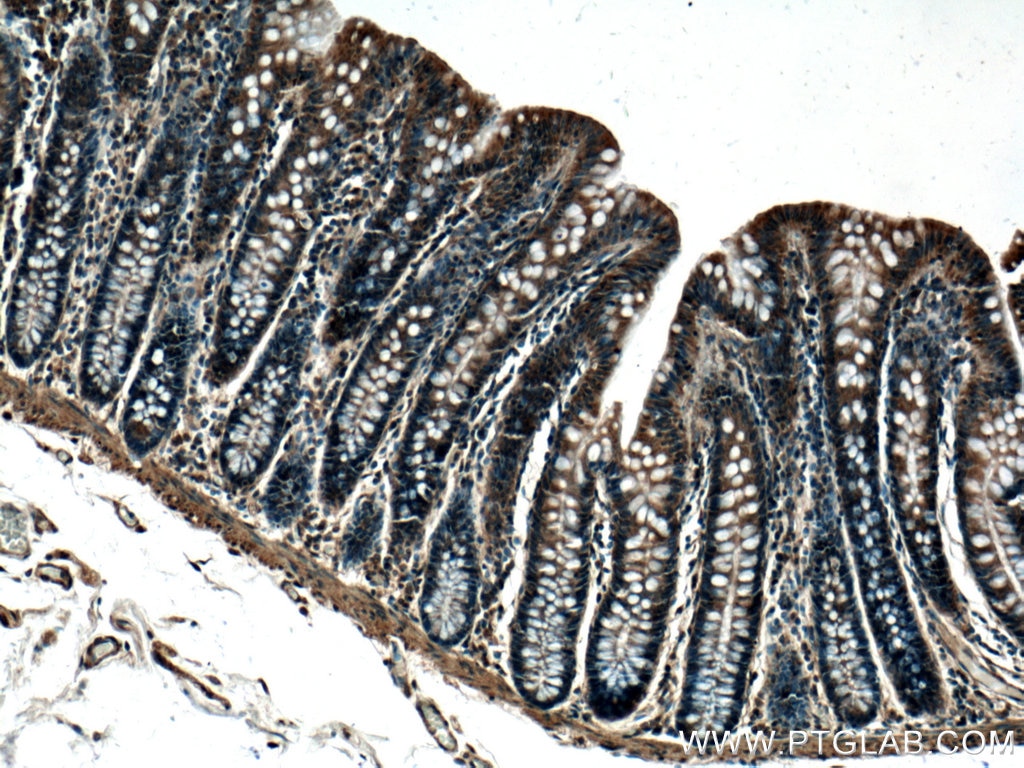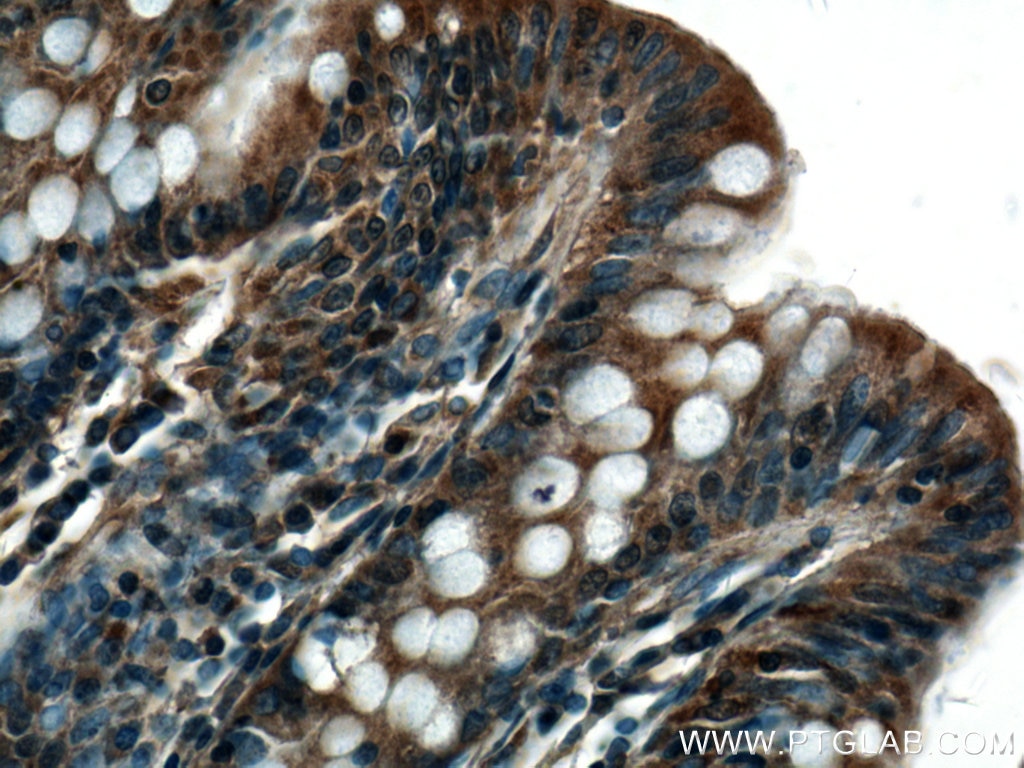Anticorps Polyclonal de lapin anti-GRK3
GRK3 Polyclonal Antibody for WB, IHC, ELISA
Hôte / Isotype
Lapin / IgG
Réactivité testée
Humain, rat, souris
Applications
WB, IHC, ELISA
Conjugaison
Non conjugué
N° de cat : 13727-1-AP
Synonymes
Galerie de données de validation
Applications testées
| Résultats positifs en WB | cellules K-562, cellules HL-60 |
| Résultats positifs en IHC | tissu cérébral de souris, tissu de côlon humain il est suggéré de démasquer l'antigène avec un tampon de TE buffer pH 9.0; (*) À défaut, 'le démasquage de l'antigène peut être 'effectué avec un tampon citrate pH 6,0. |
Dilution recommandée
| Application | Dilution |
|---|---|
| Western Blot (WB) | WB : 1:1000-1:4000 |
| Immunohistochimie (IHC) | IHC : 1:50-1:500 |
| It is recommended that this reagent should be titrated in each testing system to obtain optimal results. | |
| Sample-dependent, check data in validation data gallery | |
Informations sur le produit
13727-1-AP cible GRK3 dans les applications de WB, IHC, ELISA et montre une réactivité avec des échantillons Humain, rat, souris
| Réactivité | Humain, rat, souris |
| Hôte / Isotype | Lapin / IgG |
| Clonalité | Polyclonal |
| Type | Anticorps |
| Immunogène | GRK3 Protéine recombinante Ag4685 |
| Nom complet | adrenergic, beta, receptor kinase 2 |
| Masse moléculaire calculée | 688 aa, 80 kDa |
| Poids moléculaire observé | 70 kDa, 90 kDa |
| Numéro d’acquisition GenBank | BC036797 |
| Symbole du gène | GRK3 |
| Identification du gène (NCBI) | 157 |
| Conjugaison | Non conjugué |
| Forme | Liquide |
| Méthode de purification | Purification par affinité contre l'antigène |
| Tampon de stockage | PBS avec azoture de sodium à 0,02 % et glycérol à 50 % pH 7,3 |
| Conditions de stockage | Stocker à -20°C. Stable pendant un an après l'expédition. L'aliquotage n'est pas nécessaire pour le stockage à -20oC Les 20ul contiennent 0,1% de BSA. |
Informations générales
GRK3 (G protein coupled receptor kinase 3), also known as ADRBK2 or BARK2, belongs to the G protein coupled receptor kinases (GRKs) family. GRKs are serine/threonine kinases that regulate a large and diverse class of G-protein coupled receptors (GPCRs). GRKs have been shown to play a critical role in the outcome of a variety of physiological and pathophysiological processes including chemotaxis, signaling, migration, inflammatory gene expression and so on (PMID: 28950947, 29483837). GRK3 was identified as a negative regulator of CXCL12/CXCR4 signaling, and has also been shown to be overexpressed in human prostate cancer and found to promote tumor growth and metastasis by enhancing angiogenesis (PMID: 23935208, 24434559). GRK3 has a molecular mass of 75-80 kDa, and also can be ubiquitinated (PMID: 20596523).
Protocole
| Product Specific Protocols | |
|---|---|
| WB protocol for GRK3 antibody 13727-1-AP | Download protocol |
| IHC protocol for GRK3 antibody 13727-1-AP | Download protocol |
| Standard Protocols | |
|---|---|
| Click here to view our Standard Protocols |
